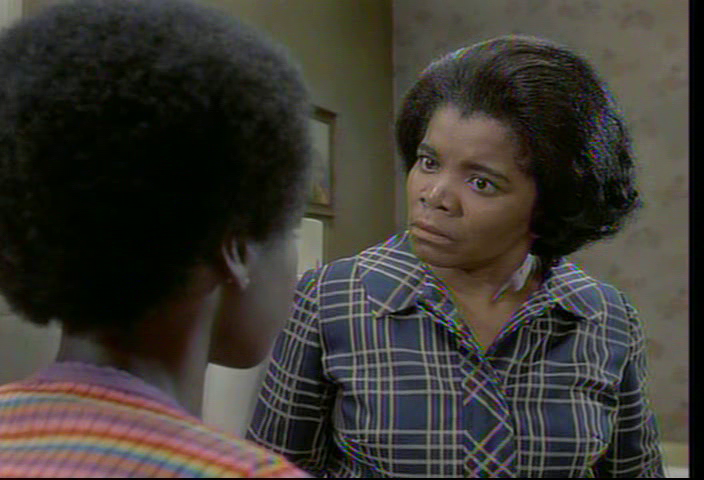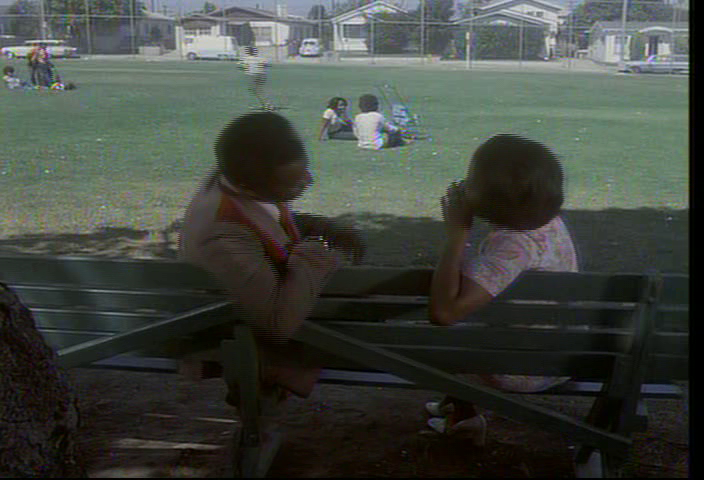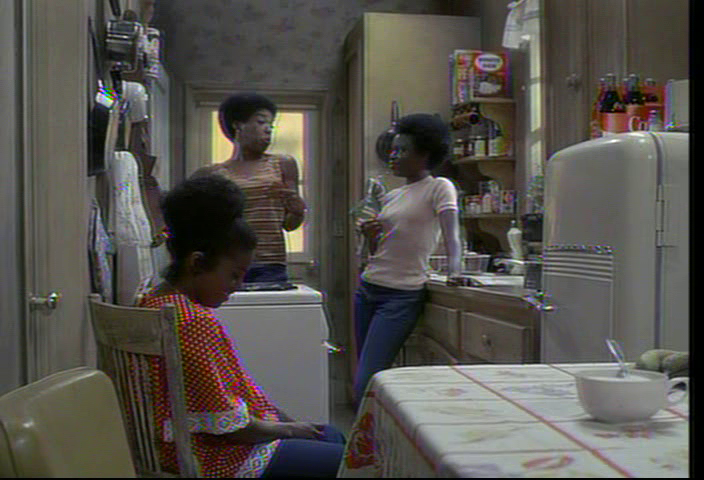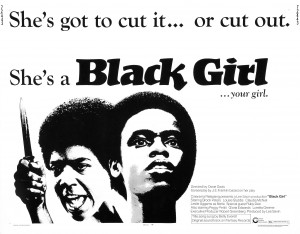|
Genres, Themes, Actors, and Directors:
- African-Americans
- Jealousy
- Play Adaptations
- Ruby Dee Films
- Siblings
Review:
This hard-hitting family drama — based on a play by J.E. Franklin — is graphically authentic in its representation of family dysfunction spiraling through generations. Full of profanity and cruel mistreatment, it’s a challenging but oddly refreshing viewing experience — much like August: Osage County (2013) (also based on a play). Pettit and her two half-sisters — all high school dropouts, living in a cramped apartment with their mother, grandmother (Claudia McNeil), and grandmother’s boyfriend (Kent Martin) — are deeply embittered by their mother’s overt dismissal of their own potential, and understandably furious that Stubbs turned to foster parenting in an attempt to salvage her own reputation as a supportive mother. Uggams — who’s gone away to a “white person’s college”, and whose own mother (Ruby Dee) had a nervous breakdown — adores “Mama Rose”, but feels conflicted about the effect her own success has had on her foster siblings.
An early interlude involving a visit from Stubbs’ first husband (Brock Peters) — biological father to Edwards and Greene — reveals quite a bit about Stubbs’ history and crushed dreams. He arrives waving $100 bills around, demonstrating his enduring power over the household years after he cheated on Stubbs and left for Detroit; he only half-jokingly withholds money from Pettit, who has borne the burden of different paternity her entire life. To that end, she clearly represents an opportunity to escape — if she can manage the wrath of her envious sisters, who are desperately trying to hold her back along with them. While not a true literary masterpiece like Lorraine Hansbury’s Raisin in the Sun, Black Girl remains worthy viewing for those interested in fearless exploration of family dynamics.
Redeeming Qualities and Moments:
- Louise Stubbs as Mama Rose

- Good use of outdoor locales

- A hard-hitting script

Must See?
No, though it’s strongly recommended if you can stomach it.
Links:
|




One thought on “Black Girl (1972)”
First viewing. Not must-see.
Somewhat meandering slice-of-life family drama that’s often content to serve up clichés. There’s a whole lot of yelling and screaming about who didn’t get or isn’t getting enough love, all of which is mixed in with unhealthy doses of bitterness and/or jealousy.
The talky script isn’t partial to subtlety, which was no doubt a challenge to director Ossie Davis – an actor himself, who nevertheless couldn’t seem to help his cast find much of a range in what they were called on to do. (A notable exception is the scene in which Greene, Edwards and Pettit slowly evolve into plotting against ‘outsider’ Uggams.)
‘Black Girl’ does indeed aspire to being ‘A Raisin in the Sun’ for a new generation. It even brings back Claudia McNeil to virtually play the same role she played in ‘Raisin’ – as well as Ruby Dee (Davis’ real-life wife), who is here reduced to a brief (and mute) appearance as Uggams’ mentally challenged mother. Alas, ‘BG’ falls quite short of ‘A Raisin in the Sun’.